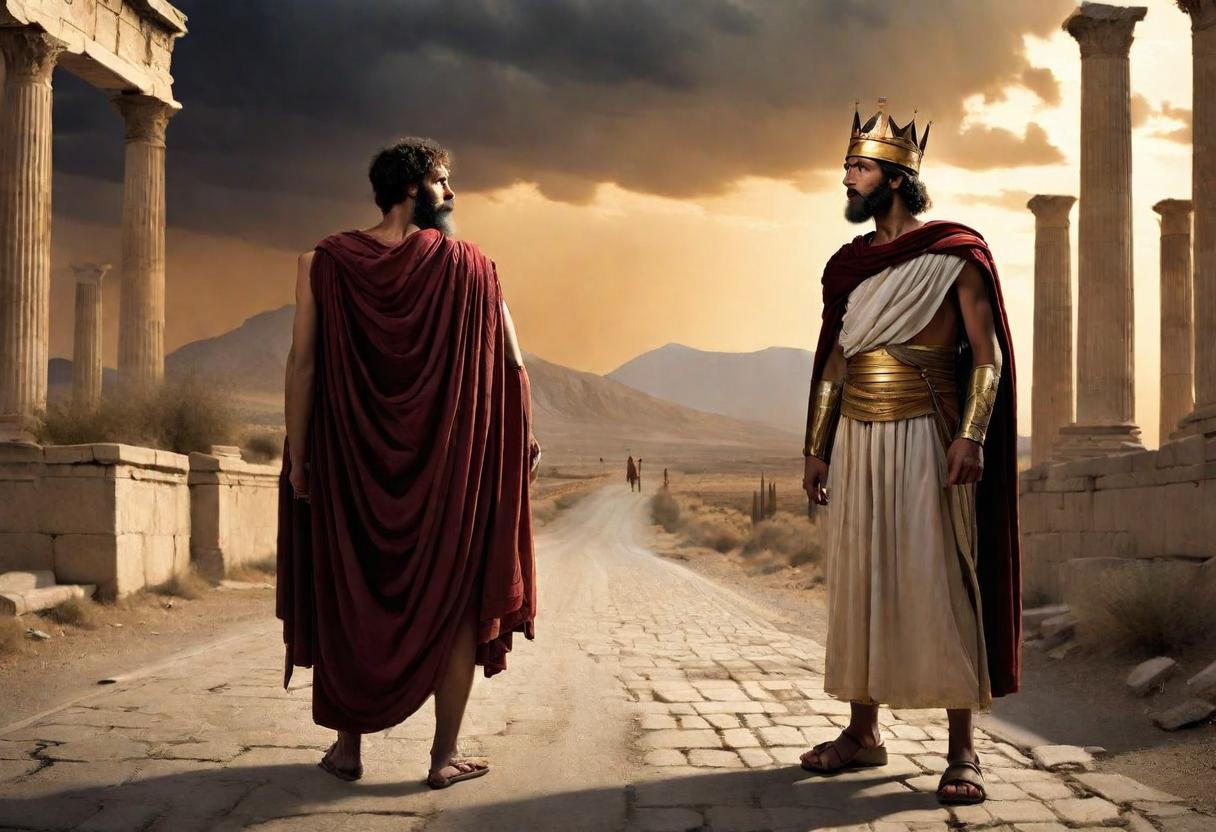In “Waiting for Godot” by Samuel Beckett, two men, Vladimir and Estragon, find themselves in a barren landscape, waiting endlessly for someone named Godot. They engage in various conversations and activities to pass the time, pondering life’s meaning and their purpose. As they wait, they encounter characters like Pozzo, a pompous man who mistreats his servant Lucky, and a boy who brings messages from Godot. Despite the repetitive disappointments, Vladimir and Estragon continue to hope that Godot will arrive, symbolizing the human quest for meaning in a seemingly meaningless world. Beckett’s play, a cornerstone of the Theatre of the Absurd, explores themes of hope, despair, time, and the human condition with simplicity and profound depth.





